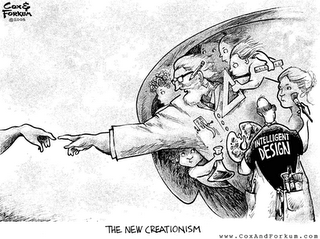The Social Theory group was set up to encourage discussion and debate amongst researchers in University College Cork on and around the topic of Science and Technology. Academics from the Department of Government, Sociology, Food Business and Management, Biochemistry, and Philosophy are regularly in attendance.
Please feel free to comment on either of the abstracts and to add further to this discussion thread.
Recent presenters include:
November 30th 3-5pm
Catherine O Mahony "Influence of the democratic model of science communication"
Department of Biochemistry
Abstract
Science communication has predominantly followed a linear (or deficit) model since Victorian times with information being transmitted in one direction from the scientific community to inform the wider public. However, Eurobarometer studies (European Commission 2001) have shown, that the more the public learns about science, paradoxically, the more they distrust science. Thus, current science communication practices based on the linear/deficit model are actually counter-productive.
There are many reasons for communicating science; inter alia such as the democratic requirement for the public to have adequate and understandable knowledge about science and its applications prior to making policy, funding or personal decisions, the need to increase public acceptance of science and resultant technologies, and the desire, by scientists primarily(The Royal Society 2006), to justify the increased public investment in scientific research by taxpayers. My project asks whether better methods for communicating science are in existence, or can be developed; i.e. novel science communication approaches which can offset the problems raised by the linear model.
One such proposal is a more democratic or participatory model of science communication. This model particularly encourages the early upstream involvement (J. Wilsdon & R. Willis 2004) of the public, e.g. a range of societal groups, with public inputs & dialogue facilitated both at the beginning and during the research agenda and policy setting process. There are a number of benefits (for both scientists and society alike) that would arise from the broadening of social involvement in science and technology agenda setting. However, despite a body of theoretical work in this area in the social science[1], there are few examples of working mechanisms for more democratic or participatory models of science communication.
My project specifically investigates approaches to engage a broader swathe of societal actors (groups) in decision-making processes for publicly-funded R & D agenda setting and prioritisation in the biosciences. To date I have been researching on the following topics (a) use of electronic survey tools for broadening inputs to plant research R & D planning in Ireland and the EU; (b) how conflict resolution approaches can be adapted to consensus building in biosciences R & D; (c) surveying how patient/sufferer groups in Ireland are an example of client-driven R & D agenda setting and (d) whether the concept of science shops have the potential to facilitate more client-driven R & D that involves a broader range of societal groups in science and technology.
I am currently researching the Technology Foresight process in
[1] See “Public Understanding of Science” journal, “Science Communication” journal, SPRU Science and Technology Policy Research Unit at University of Sussex, CIPAST Project - EU research group on citizen participation in science and technology, CESAGEN Centre for Social and Economic aspects of Genomics at Lancaster University, etc.
[2] International Assessment of Agricultural Science and Technology for Development (www.agassessment.org/)
October 26 2006 3-5pm
Alfred Moore "Ethics and Politics in the Governance of Biomedicine in the UK"
Department of Philosophy
Abstract
Ethics has emerged over the last 25 years as a key term in the regulation of the field of biotechnology and reproductive medicine, both in the
[1] The research project on which this article is based has investigated bioethics-politics in



